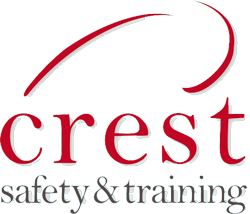MARS (Mental Awareness, Respect and Safety) is a government initiative targeting mental health, sexual harassment and safety in Western Australia’s mining industry.
One part of the project is a study being undertaken by Curtin University. The study which will run from 2021 to 2026, will collect data to determine the success of work place initiatives to improve metal health, respect and culture in the mining industry.
The findings of the study will result in 5 reports:
- Preliminary report 1 – an overview of the current state of wellbeing in mining
- Preliminary report 2A – a review of literature
- Preliminary report 2B – a study of current practices
- Preliminary report 3 – findings from follow up data.
- Final report 4 – consolidating findings and data from across the 4 years.
The Preliminary report 1 was published in October 2022. It focussed on 3 domains:
- Health and wellbeing
- Physical health and safety and
- Workplace culture and sexual harassment.
It aimed to provide an overview of current wellbeing in the mining sector. It analysed baseline data and produced some of the following findings:
- Mining workers tend to have better physical health than other industries.
- Generally mining workers are more satisfied with their jobs than they were 15 years ago.
- However, high levels of job satisfaction have decreased. In fact, mining workers recorded lower levels of “high” satisfaction as compared to other industries.
- Levels of lower psychological distress were decreasing but levels of high psychological distress were increasing.
- The mining industry is one of the worst five industries in relation to sexual harassment issues with 74% of female workers reported having experienced sexual harassment in the last five years.
- Major risk factors which contribute to a high incidence of sexual harassment in the mining industry include poor culture (including a hyper-masculine culture), gender inequality and power disparity.
- Gender discrimination can be cyclic, when women are not being promoted to managerial roles it can result in systems that further discriminate.
- Analysis of corporate documents (annual reports etc.) show that mining makes less reference to wellbeing than non-mining industries and more references to physical health and safety.
- Companies with above-average representation of women in management are more likely to prioritise employee mental health and well-being, physical health and safety, and workplace culture and sexual harassment relative to companies with a below average representation of women in management.
- Training, specifically training to middle and upper management, reflects in improved wellbeing outcomes for the workforce. Training must not be a tick in the box exercise.
- Similarly, organisation that have systems in place to manage complaints and protect whistle blowers have better wellbeing outcomes.
Watch this blog for more on the remaining reports.
